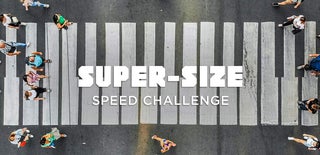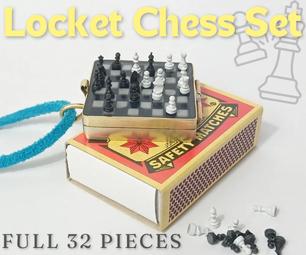Introduction: GIANT Rubik's Cube (Functional)
I learned how to solve a Rubik's cube a few years ago, but solving it eventually became kinda boring. Instead of attempting to improve my time and memorize algorithms, I designed my own cube. Nearly one year ago, I finished making a functional 3D printed Rubik's cube. Now, motivated by Instructables, I made one out of cardboard that is about 15 times as big.
Supplies
- a LOT of cardboard
- hot glue
- some pvc pipe
- small wood blocks
Step 1: Understanding the Cube
The Rubik's cube consists of 27 pieces, 26 of which contribute to the surface area. All six center pieces intersect in the middle of the cube, and are only able to spin. The 4 different parts are the skeleton (1), the central pieces (6), the side pieces (12), and the corners (8).
Step 2: Center Pieces (Part 1)
I made my squares with a side length of 10" because that was the height of the amazon packages I had on hand. Each of the 6 center pieces consists of one square, and four (26cm x 13cm) rectangles with a 2cm-deep curved cut.
Step 3: Center Pieces (Part 2)
The next step is to attach the PVC pipe without preventing the spinning motion. I did this by adding a disks near the end of the pipe. I then slid a cover over everything to keep it in place. The end of the pipe is held in place by a wood block.
Step 4: Side Pieces
You will need to make 12 Side pieces. Start by gluing four squares together, then cutting out a quarter-circle with a 12.5cm radius. Then use a bent piece of cardboard to cover cover that gap. Glue rounded tabs to the middle of the bridge, and the piece is complete.
Step 5: Corner Pieces
The 8 corner pieces have a 26x26cm cube as a foundation. After making the cube, glue curved pieces of cardboard near the edge which match up with the side pieces. I added right triangles to help stabilize the connection.
Step 6: The Core
All you will need for the core is a piece where all the PVC ends can meet. This can be made from a wood block or a PVC cross with a hole drilled through it. Just make sure that the PVC is glued in properly and will not spin or slide out.
Step 7: Assembly
Since we have not yet colored the pieces, the order doesn't matter. Just glue in five of the center pieces and slide in the rest. At the end you can glue in the last PVC pipe.
Step 8: Coloring
You may want to use a rubik's cube as reference but here is a list of colors and where they belong:
TOP- white
BOTTOM- Yellow
FRONT- Green
BACK- Blue
LEFT- Orange
RIGHT- RED
Step 9: Time to Solve
Now just scramble your cube and have fun solving it! :)

Participated in the
Super-Size Speed Challenge











